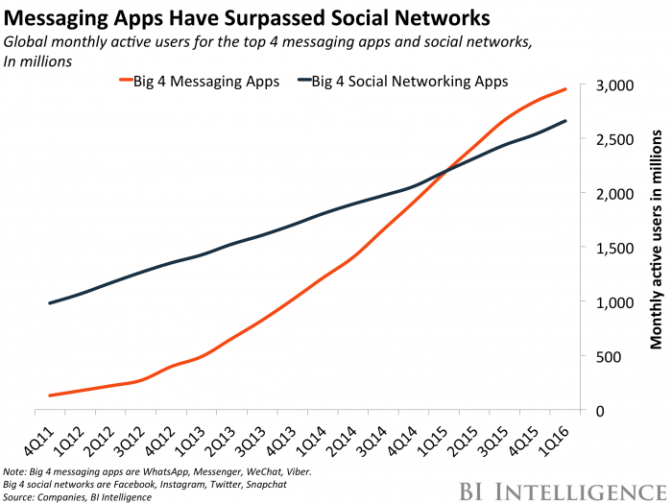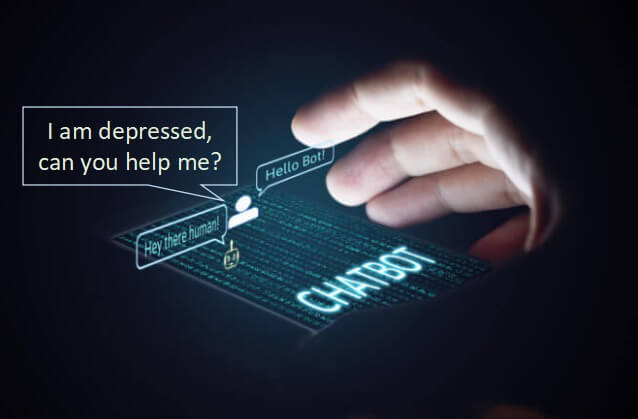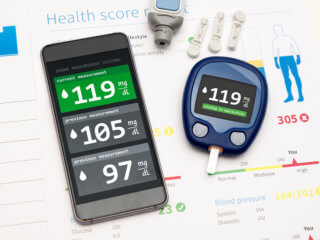Are we ready to accept chatbots in digital healthcare?
If you thought Chatbot is another new technology, I would confidently tell you that it is high time you set your mind to believe in an entirely different dimension. MIT Artificial Intelligence Laboratory was the first to build a chatbot in 1966. Eliza, the name of the chatbot created by Joseph Weizenbaum was constructed to mimic a human conversation. Since then, the chatbot industry has continued to proliferate despite the doubt that it is not safe for the handling of essential errands. However, holding the fact that some patients live in far-plug areas where access to healthcare facilities is limited, this technological revolution of chatbots can improve the quality of lives of these people significantly.
Chatbots are being used to accomplish various duties such as reminding people to take medication, follow diets, arranging doctor’s activities, keeping track on health status etc.
Chatbots also helps to send notifications to nurses in case of extremities, assisting home-based care helpers to keep informed about the progress of patients, taking care of inventory, and insurance management. Facebook has come up with Woebot, an AI-powered chatbot for dealing with depression and anxiety.
According to bots enthusiast, Maxim Abramchuk, it is hard to get the exact number of chatbots. However, by looking at two main platforms; Facebook messenger (chatbots) which had 100000 chatbots in April 2017 and Amazon Alexa which has 23552 voice bots, we have approximately over 123000 chatbots. Other platforms with unspecified chat bots include Kik, Viber, Telegram, Slack, Twitter, and Line.
Pros and Cons of chatbots in healthcare
Chatbots have numerous advantages to both the patients, doctors and the health institutions at large. The main benefit of chatbot is that it is interactive. Most hospitals don’t have a robust relationship with their clients when it comes to sharing information. In most cases, the clients search for the data on the website without any assistance, and they end up frustrated.
But through chatbots, they get real-time instructions. This has boosted inclusivity, efficiency, and responsiveness. A chatbot is also user-friendly to patients. Through conversational healthcare, it is more likeable to patients as the cooperation is much humanised. Hence patients enjoy the individualised proactive experience. The results are obtained efficiently and quickly. Similarly, the ability of chatbot to create a mono system of records saves the health care mainly on time and money.
Chatbots aids in scheduling appointments, organise admissions and discharges and also schedule patient consultation needs. Telemedicine also uses telecommunication to diagnose and treat patients remotely.
Today, with smart devices commonly used by patients, the effectiveness of telemedicine has improved manifold. All this will make an institution minimise their costs by saving on hours of work. Better services to customers are even guaranteed.
Relying too much on chatbots can be dangerous especially where there are no well-established security and administration requirements.
They are highly prone to cybercrime, and the patient’s data can be at risk. This can occur if there are not enough security measures to enable administrators to regulate bot circulation and also supervision of their licenses exclusively.
Chatbots have not only come with advantages but also disadvantages such as narrowness. Chatbots are made to execute just a specific task or a few related tasks but not unrelated tasks. Therefore, misunderstandings might arise if there is no human intervention. Secondly, it is impossible to teach them everything. Unlike apps, development procedures for the chatbot are insufficient, regarding the tools used to make them. Lastly, despite the use of chatbots, human contribution is still obligatory.
| Recommended for you | |
| Can a mobile app cure depression? | |
| Growth of chatbots in healthcare industry | |
| 4 Dangers of health-related information falling into wrong hands |
Acceptance of chatbots in the health sector
Messaging apps are on the rise, so are the chatbots. The main chatbot platforms that have already made a significant adoption of chatbots are the Facebook messenger, Amazon Alexa, Kik, Viber, Telegram, WeChat, Slack, and WhatsApp. The recent report by Grand View Research, notes that the worldwide chatbot market is anticipated to hit $1.23 billion by 2025 at a CAGR of 24.3%. 45% end consumers prefer chatbots as the primary form of communication. Besides, the leading four messaging apps registered the highest number of active users globally in 2015 surpassing four top social networks.

Image courtesy of Business Insider
If chatbots are to be successful, they have to adhere to regulatory rules just like any other software, like protection and privacy check-ups. In the USA for example, they must comply with HIPAA to ensure hackers do not imperil the information of the patient. A chatbot is also restricted to enter the market until its original data is verified. The report of the bot is also updated so that it can accommodate the recent research.
Chatbots have been received positively and even replaced professionals in some fields such as in engineering and manufacturing. However, there are restrictions in the medical area because people are unique and also medical conditions may vary considerably. Any single mistake can be detrimental.
To save time they are being assigned less complicated and less risky tasks, and even used where the accuracy is needed. Because of their efficiency and agility of executing duties, they are highly preferred by the doctors and patients, but they will never replace the human intervention in the medical field.
Future of healthcare chatbots
Chatbots are here to stay with us. The primary concern is where and how to implement them in various sectors. Sectors such as manufacturing, mining, and engineering sectors have integrated the use of chatbots in most of their processes. Applications such as Facebook has taken the lead in the use of chatbots. The significant contribution of chatbots is in the revolutionization of the customer experiences. All that the customers have to do is to understand the interactions for maximum benefit from the chatbots.
Though the chatbots are bringing numerous advantages in the medical field, such as minimising the cost, and increasing efficiency, the negative impacts it brings to the industry can never be underestimated. A lot of attention should be put especially in their functionalities that are computerised. We all understand the damage it can cause if any mistake occurs.
It should therefore not replace the doctors in healthcare, but only be utilised in less risky tasks like reminding patients to take drugs and scheduling meetings for health practitioners.
Also, we understand that the chatbot technology is just an infant technology and security measures are still being established. They can revolutionise how things are done online. However, they can be quite damaging and result to cybersecurity problems for institutions if they don’t handle them as required.
Image credit: www.istockphoto.com


















Thanks for writing about bots and what they can do or could do. A little more business integrations and better customer experience will work out wonders. I have come across a chatbot platform called Engati which guided me to design a chatbot within 10 mins and no coding. You too can give it a try at building a bot in less than 10 mins. Engati is a chatbot platform that allows you to build, manage, integrate, train, analyze and publish your personalized bot in a matter of minutes. It presently supports eight major messaging platforms including messenger, Kik, telegram, line, Viber, Skype, slack and webchat with a focus on customer engagement, conversational commerce, and customer service and fulfillment. Read more about it here http://www.engati.com
Check out our medical AI-based chatbot here at Your.MD!
Our mission is to provide everyone with free, personalised and trustworthy healthcare information – you can help us by joining our Your.MD Tester Program!
Find out more here: https://www.your.md/testers/